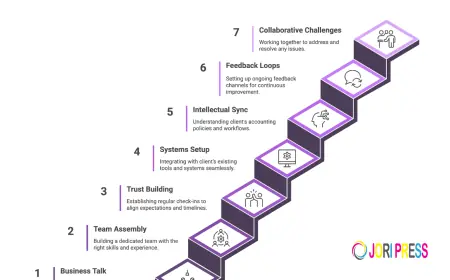Boris Johnson AIM Summit Roundtable on Global Shifts
Explore insights from the AIM Summit roundtable with Boris Johnson and David Gibson-Moore on global leadership, Middle East crises, and geopolitical shifts.
Boris Johnson and David Gibson-Moore Roundtable: Leadership Insights on Global Shifts from the AIM Summit
In a time of rapid geopolitical and economic upheaval, leaders from around the world gather at influential platforms to share their expertise and outlook. The AIM Summit has become one such forum for dynamic dialogue. The recent roundtable discussion featuring Boris Johnson and David Gibson-Moore offered a critical analysis of global developments—from the Ukraine conflict and the Middle East crisis to shifting alliances and economic volatility.
Held in Dubai, the Boris Johnson AIM Summit roundtable provided unique insight into how the global order is being redefined. The conversation, moderated by financial and political experts, addressed the emerging challenges and responsibilities facing leaders and institutions.
Boris Johnson’s Global Leadership Insights: Navigating Uncertainty
As a former UK Prime Minister, Boris Johnson’s insights on global shifts hold considerable weight. At the AIM Summit, Johnson addressed the current fragmentation of global power, emphasizing the erosion of trust in international institutions and the emergence of new power centers in Asia, the Middle East, and Latin America.
His comments during the roundtable highlighted the role of liberal democracies in safeguarding values amid growing authoritarian influence. According to Johnson, collaboration through multilateral channels remains essential to maintain a balanced global order. His call for unity among allies was a central takeaway from the event.
David Gibson-Moore’s Perspective on Global Shifts
President of Gulf Analytica, David Gibson-Moore added strategic and financial depth to the discussion. His analysis focused on Middle East crisis dynamics, the impact of geopolitical uncertainty on investment flows, and the emerging leadership required to address these multifaceted challenges.
David Gibson-Moore’s AIM Summit leadership insights stressed that while the global economy remains under pressure, regions such as the Gulf have demonstrated resilience and are poised to become major players in shaping the future. His perspective aligns with an increasingly multipolar world, where economic cooperation and soft diplomacy will drive progress more than traditional alliances.
The Middle East Crisis: Strategic Stability or Escalation?
The David Gibson-Moore on Middle East crisis portion of the conversation was particularly timely. With conflicts intensifying in several parts of the region, the roundtable delved into questions of security, energy dependence, and humanitarian considerations.
Gibson-Moore explained that while tensions remain high, diplomatic efforts and strategic investments are being leveraged to foster stability. Johnson added that global players have a responsibility to prevent escalation and instead promote negotiated outcomes that address root causes, not just symptoms.
Key Takeaways from Boris Johnson’s Roundtable Discussion
Several key takeaways from the Boris Johnson roundtable stood out for observers and analysts alike:
-
Global alliances are evolving: Old alliances are being tested, and new partnerships are being formed based on energy, security, and technological interests.
-
Leadership in uncertainty: Both speakers emphasized the need for bold but collaborative leadership to manage disruption.
-
Economic resilience: Amid market volatility, the speakers recognized the potential of emerging markets, especially in the Gulf, to offer economic stability and opportunity.
-
Soft power matters: Johnson emphasized the influence of cultural and educational diplomacy in rebuilding trust internationally.
Navigating Global Challenges with Boris Johnson and David Gibson-Moore
The narrative of global shifts was clearly one of uncertainty but also of opportunity. Navigating global challenges with Boris Johnson involved recognizing new risks—cybersecurity, misinformation, economic warfare—and adapting to them through innovation and cooperative policy frameworks.
Gibson-Moore reiterated that new leadership will emerge from regions that combine economic strength, diplomatic flexibility, and long-term strategic thinking. The Gulf is increasingly at the center of these developments.
Why These Leadership Dialogues Matter Now
This roundtable was not just about opinions—it was a platform for framing global priorities. As the world navigates inflation, war, climate pressure, and public trust issues, Boris Johnson global leadership insights provide guidance for policy action. Similarly, David Gibson-Moore’s perspective on global shifts draws attention to regional innovation and leadership potential, especially from the Middle East.
These insights are particularly relevant for investors, policymakers, academics, and global citizens who want to understand how leadership is evolving in response to new global dynamics.
The Role of AIM Summit in Shaping Global Conversations
The AIM Summit has become a stage for critical thinking and collaboration. Events like this roundtable drive value far beyond the room by shaping narratives in boardrooms, policy discussions, and investment strategies around the world.
Boris Johnson and David Gibson-Moore roundtable sessions give voice to concerns that affect multiple sectors—technology, finance, energy, education, and governance. By offering practical insights and foresight, the summit connects thought leadership to global impact.
For a more in-depth look at this discussion, read the full article here:
? Navigating Global Shifts: Insights from a Roundtable with Boris Johnson at the AIM Summit
What's Your Reaction?
 Like
0
Like
0
 Dislike
0
Dislike
0
 Love
0
Love
0
 Funny
0
Funny
0
 Angry
0
Angry
0
 Sad
0
Sad
0
 Wow
0
Wow
0
















































